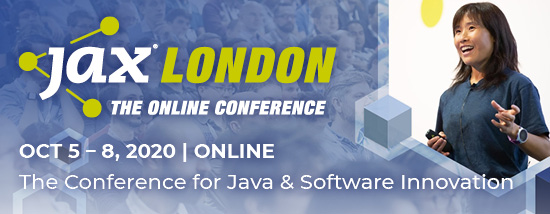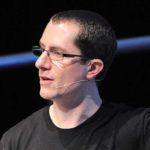A research study by The National Center for Women & Information Technology showed that “gender diversity has specific benefits in technology settings,” which could explain why tech companies have started to invest in initiatives that aim to boost the number of female applicants, recruit them in a more effective way, retain them for longer, and give them the opportunity to advance. But is it enough?
Three years ago, we launched a diversity series aimed at bringing the most inspirational and powerful women in the tech scene to your attention. Today, we’d like you to meet Priscila Oliveira, software engineer at Sentry.
Today’s Woman in Tech: Priscila Oliveira, software engineer, Sentry
 Priscila Oliveira is a Front-End Engineer. She is currently a software engineer at Sentry, where she works on the user interface of the Sentry application.
Priscila Oliveira is a Front-End Engineer. She is currently a software engineer at Sentry, where she works on the user interface of the Sentry application.
Priscila is also a member of the core team for the open source application Verdaccio, where she collaborates with many developers to improve the user interface.
When did you become interested in technology?
I think I was eight years old when my dad bought our first computer. I remember it like it was yesterday when a huge box arrived at our house. I didn’t know much about computers back then, but I was super excited to learn more and learn how to use one, especially since my dad had also bought some computer games.
It didn’t take me long to get familiar with that big machine. Every day after school, the first thing I would do would be to sit in front of the screen to play games and dig through whatever I found interesting. After that, I couldn’t imagine my future without a computer. I loved it.
How did you end up on your career path?
Typically, when girls say they want to go to a technical school, their parents or teachers discourage them, but luckily that wasn’t the case for me. When it was time for high school, I asked my parents if they could enroll me in a technical high school with a focus on computer programming and they supported me.
I confess that in the beginning everything was so different and seemed difficult, but I loved the clear thinking and analytical approach to problem-solving that software development requires.
So after high school, with the encouragement of my physics teacher, I decided to pursue my studies in engineering.
At college, it was very interesting to see that there weren’t as many girls as there were at the technical high school. In the classroom, there were only two other girls and I. Although males were the majority in college, I never saw it as a problem for me, and I never felt intimidated by anyone. I remember that everyone always treated me with respect and was indifferent to my gender. The time at college was great!
During my studies, I had to do mandatory internships, which was very good because I was still unsure of what path to take in the IT area.
My last internship was as a web developer in an advertising company, where I was also hired after a few months, having my first full-time job.
Although I loved my job at the advertising company, I wasn’t entirely sure if web development was what I really wanted to focus on. After some time, an opportunity came up to work as a .NET developer in a very large multinational company. Although I didn’t have any experience with .NET, I always liked challenges and learning new programming languages, so I decided to take the opportunity.
It was a great experience to work with .NET, but that’s when I realized that what I enjoy working with is web development using JavaScript and other technologies. So when I moved from Brazil to Europe, I decided that I wanted to focus my career as a front-end engineer.
As an obstacle, I can say that in Austria, when looking for a job, I realized that the language was a barrier for me, as most of the job opportunities available required a certain level of German that I didn’t possess.
After a few months, I got a job as a web developer in a small Austrian company, and it was very interesting to communicate with people at work in a language other than Portuguese. It was not an easy thing and it took me some time to adapt.
The same thing happened when I moved to Prague and got a job as a frontend engineer, in which I would only speak English at work. Naturally, the English language is essential for working in the IT field, but it was a totally different experience when I needed to communicate with people on a daily basis in English.
Did you receive support from your family and friends? Do you have a role model?
Yes, my family and friends have always been very supportive. My mother, who also works in the IT field, always said that I could choose the career I wanted and that she would support me. As for my father, I remember he was always a big fan of technology and said IT was the future. I think he was happy with my choice as he let me decide for myself, never doubting if I was capable.
The few friends I had at that time enrolled in the same course and university as I did, so we were happy to study together.
My mom is definitely my role model in the tech industry. She is an amazing woman who works hard and inspires me every day. I can also name a few big developers that I admire a lot, like Sarah Drasner, Monica Lent, and Liz Parody, three women who are very inspiring in the technology field today.
My mom is definitely my role model in the tech industry. She is an amazing woman who works hard and inspires me every day.
Did someone ever try to stop you from learning and advancing in your professional life?
I’ve met some people along the way who didn’t have confidence in my abilities, but as a positive person who doesn’t give up so easily, I didn’t let this get in my way. Instead, I used it as a motivation to learn more and move forward, becoming a better professional.
Nothing can stop you if you believe in yourself and strive for it!
A day in Priscila’s life
I’m currently a software engineer at Sentry, working on the user interface of our application.
My workday usually starts with a good cup of coffee and lots of code to review. After that, I sync with my team, discussing what tasks we will be working on for the day, if there are any impediments, or if anyone needs help.
During the day I try to code as much as I can, which is the best part, but I usually also have many meetings with stakeholders to discuss features and improvements that we would like to have in our product.
Last but not least, my day also involves a lot of error monitoring, which I find particularly interesting when working at Sentry, as we use our product to monitor bugs in the code we deploy.
Why aren’t there more women in tech?
It has already improved a lot, but I still believe that the cultural factor is largely responsible. The problem starts in childhood when boys are encouraged to face challenges and win. Meanwhile, the girls learn more care-related characteristics. This ends up directly influencing the future, making courses in the IT area have a male dominance.
There may also be unintentional biases when it comes to hiring women because tech companies want to hire “the best candidates,” and their reference for “the best candidates” is a male-dominated sample.
Also, many women give up their careers in the technology field due to lower salaries, discrimination, and sexism, which are still present in many work environments.
What are you most proud of in your career?
This is a great question that made me reflect a lot!
After having made many important contributions to the community, I can say that I am very proud to have become a member of the core team for Verdaccio, an open-source application that is being widely adopted by users across the world.
Another important achievement I’m very proud of is getting my dream job as a software engineer at Sentry, which is a Silicon Valley unicorn company. The company not only offers a product that I believe in and enjoy using, but it also celebrates diversity and inclusion, which are values that I greatly appreciate.
Could you name a few challenges (or obstacles) women in tech face?
As men are still a predominant presence in the tech industry and as our culture still has this strong stereotype that men are better than women, we are often influenced by this ourselves, doubting our own capabilities and skills. We must always be confident and not let this happen. After all, we are capable of the same.
Would our world be different if more women worked in STEM?
By having more STEM women, as well as people from various ethnic, economic, and social backgrounds, there is more opportunity for broader thinking and for us to advance even further. Better representation in STEM will consequently offer more role models to inspire and encourage future generations to choose a career in technology.
The world would definitely be a better place with more women working in STEM. As in any field, diversity is critical. To encourage new forms of problem-solving, unique minds need to come together, bringing diverse experiences and knowledge.
The discussion about diversity is gaining momentum. How long will it take to see results from the current debate?
The job market is changing for the better. It’s great to see more companies embracing diversity, but hiring for diversity is not enough. The truth is that diversity alone does not provide a competitive advantage without inclusion.
Inclusion at the workplace is about having an environment where all individuals are valued, treated fairly and respectfully, and have equal access to opportunities and resources. It is related to the quality of the human experience.
For example, a diverse workplace recognizes that there may be people following a plant-based diet. Inclusion means thinking about them when organizing a company event, for example, making sure that these people will also have options available. In this way the company shows these people that they are valued.
As to how long it will take to see results, I honestly hope not long. In the case of us women, I would say that the debate has come to fruition when we see more women in senior and leadership positions.
By contributing to an open source project, you become part of a community that will help you grow by always providing feedback on your development and programming skills.
What advice (and tips) would you give to women who want a tech career?
1 – The options in the tech industry are unlimited
There are so many different roles in technology. It’s not only about programming or coding. You should never be afraid and never think that the guys are better at it than you.
2 – Don’t let the learn fatigue overcome you
In the beginning, it’s very easy to get overwhelmed with the number of things to learn, and you’ll come across people saying you have to learn this, that, and that. Just start slow and focus on the things that will help you at the moment. You don’t need to know everything.
3 – Don’t be afraid to fail
We all started somewhere and we all had to learn and fail—even the smartest people out there. It is part of the learning process.
4 – Attend local meet-ups
Attending local meet-ups is a great way to connect with people in the area and keep up with the technologies that are currently at stake.
5 – Start contributing to open source
Open source is when a project is free to use, study, modify, and distribute for any purpose.
By contributing to an open source project, you become part of a community that will help you grow by always providing feedback on your development and programming skills. It’s also a good opportunity to connect with other developers who have similar interests.
A contribution is not restricted to coding. Even if you like writing code, other types of contributions, such as documentation, are necessary for all projects. You can help by updating or translating the documentation or texts present in the application. Designers are also highly appreciated because, together with developers, they can work to make the user experience of the project’s application and website better.
Another way to contribute is by managing a community by answering questions and welcoming new joiners.
More Women in Tech:
- Women in Tech: Hadas Weinrib, Head of Marketing, Lightspin
- Women in Tech: Nahid Akhtar, Data Engineer at McMakler
- Women in Tech: May Goldstein, Senior Infrastructure Consultant at Red Hat
- Women in Tech: Sheeka Patak, Senior Software Engineer at Zendesk
- Women in Tech: Sabine Bär, Software Architect and Lead Dev
The post Women in Tech: “Unique minds need to come together” appeared first on JAXenter.
Source : JAXenter




















